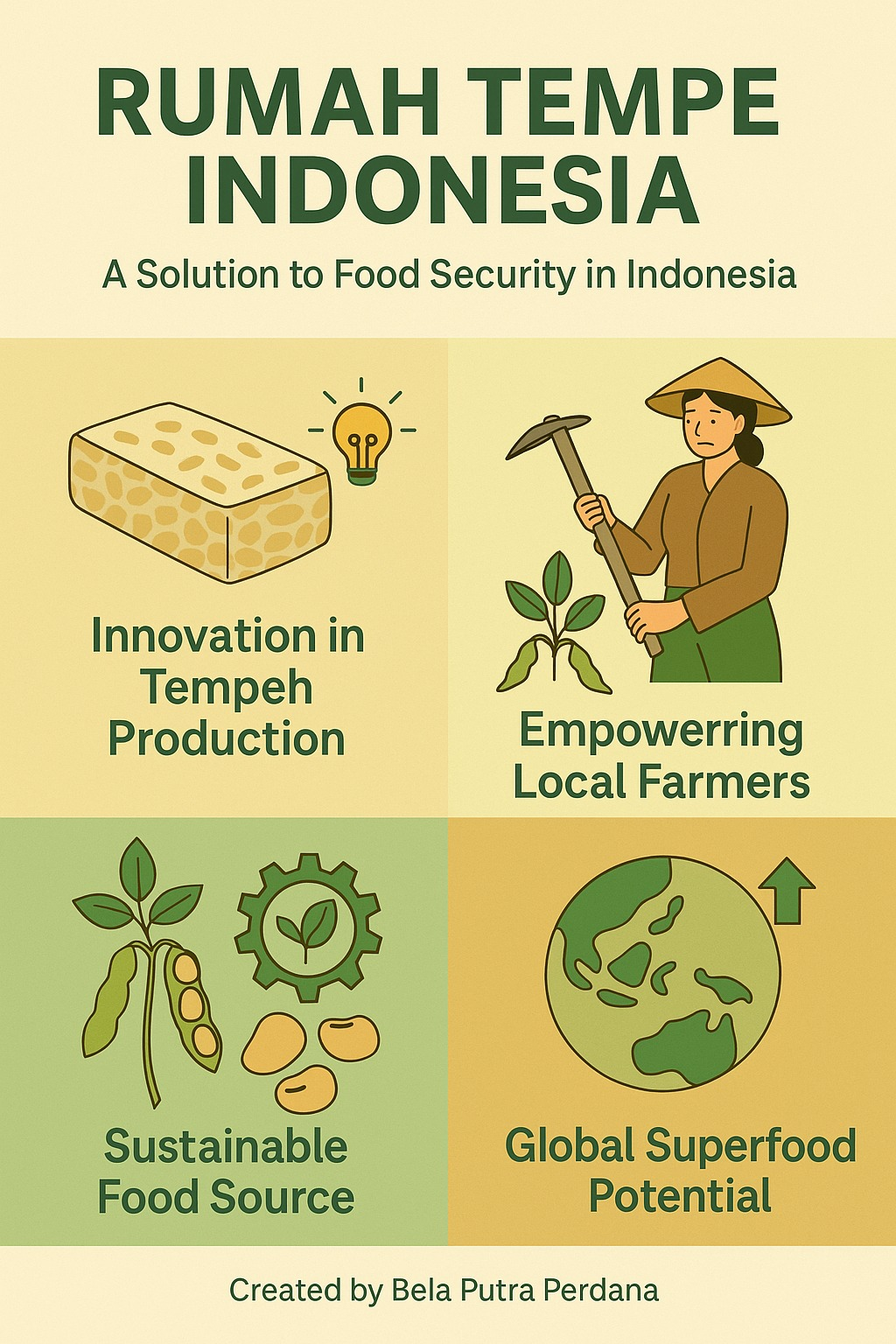As the world faces growing concerns over food security, Indonesia—a country rich in agricultural resources and traditional knowledge—is seeking sustainable solutions that not only address hunger, but also support health, the economy, and the environment. One such solution lies in a humble, centuries-old food: tempeh. And at the heart of tempeh innovation is Rumah Tempe Indonesia (RTI).
A Center for Sustainable Innovation
Located in Bogor, West Java, Rumah Tempe Indonesia was established in 2012 as a modern facility dedicated to producing high-quality tempeh using safe, hygienic, and sustainable practices. More than just a production center, RTI functions as a hub for research, education, and community empowerment, aiming to elevate tempeh from a traditional food to a strategic asset in achieving national food resilience.
Why Tempeh? A Superfood for the People
Tempeh, made from fermented soybeans, is a highly nutritious and affordable protein source. It contains all essential amino acids, is rich in probiotics, and is versatile in a wide range of dishes. Because it is plant-based, tempeh production requires significantly less land and water than animal protein, making it ideal for sustainable food systems.
In a country where millions still struggle with access to nutritious food, promoting tempeh as a staple can help ensure food availability, accessibility, and nutritional adequacy.
Empowering Communities, Reducing Dependency
One of RTI's key missions is to empower local producers with knowledge and technology. By training small and medium enterprises in hygienic and efficient tempeh-making processes, RTI helps build self-reliant food systems at the community level. This decentralization reduces reliance on expensive imports or centralized food chains that are vulnerable to disruption.
Furthermore, RTI encourages the use of locally grown, non-GMO soybeans, which strengthens local agriculture and supports smallholder farmers.
A Model of Food Sovereignty
Food security is not just about having enough to eat—it’s also about having control over how food is produced, distributed, and consumed. RTI’s model aligns with the principles of food sovereignty, where communities can shape their food systems according to their own needs, cultures, and resources.
By promoting tempeh—a culturally rooted, nutritious, and environmentally friendly food—Rumah Tempe Indonesia empowers Indonesians to feed themselves, on their own terms.
A Scalable Solution for the Future
In the face of climate change, rising food prices, and increasing population pressure, scalable, low-cost, and sustainable food solutions are essential. Tempeh, with its low carbon footprint and high nutritional value, fits this role perfectly.
Rumah Tempe Indonesia shows how local wisdom, when combined with modern innovation, can create powerful solutions to global problems. Its approach can inspire similar models not just across Indonesia, but throughout Southeast Asia and beyond.
Conclusion:
Rumah Tempe Indonesia stands as a beacon of how traditional food can play a modern role in securing the future. As Indonesia moves toward a more resilient, equitable food system, tempeh—and RTI—may very well lead the way.
Bela Putra Perdana

Komentar
Posting Komentar